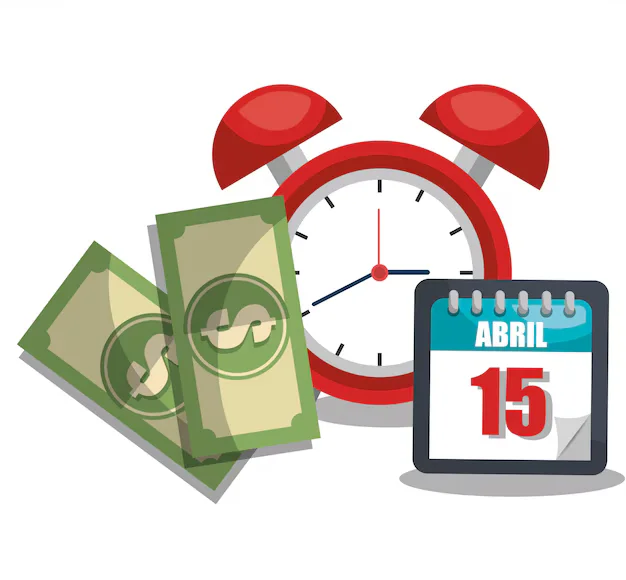Billable Hours: How to be fair to yourself

Several service providers and professionals often struggle with getting fair pay for the hours invested at work. The reason is poor tracking of the billable hours. Keeping track of your chargeable hours can seem tricky, considering maximizing work productivity and earnings.
But suitable systems can help you easily track your work time so that the client pays for what hours your work is worth.The more you know how to optimize your work hours, the better your chargeable hours are for fair pay.
This article will take you through all you need to know about billable hours billable hours, how to be fair to yourself, what they are, and how to manage/ track them as a fairness method to yourself at work. Therefore, keep reading to learn more.
What are Billable hours?
Billable hours refer to the amount of time you spend working on a project to provide a particular service your client has to pay. It is a system of charging for your time– hourly pay, if you may. Usually, service providers like wealth consultants, attorneys, freelancers, etc., use chargeable time when invoicing their clients for payment.
However, not all hours in the day are spent doing a particular job, which creates controversy among some schools of thought about what hours constitute and do not constitute invoiceable hours.
For example, if a freelance writer spends 3 hours to write a 1000 word article, 1 hour on research/gathering reference materials, and 5 hours taking a course on how to write great articles, how do we calculate the billable hours for this freelancer?
The best approach is to calculate only those hours spent on the job (billable hours) while learning new skills (non-billable hours) is a part of personal and professional improvement. As a result, you do not expect the client to pay you for learning new skills.
However, you can charge for your new skills when you utilize them in creating value for the client. Therefore the freelancer's invoiceable time is 3+1=4 hours that were actively spent writing the 1000 word article.
Billable hours refer to the hours worked by professionals or service providers that can be invoiced to clients or customers. These hours represent the time spent directly on tasks or projects that are billable to clients based on predetermined rates or agreements.
Billable hours are primarily used in industries such as consulting, law firms, accounting firms, creative agencies, and freelancing, where professionals provide services on an hourly basis.
The concept of billable hours helps determine the value of services rendered and serves as the basis for invoicing clients.
Here are some key points related to billable hours:

Tracking:
Professionals or service providers typically track billable hours using time tracking tools or time tracking software, which help manage the billing process and keep a record of how many hours are billable. This allows them to accurately record the time spent on specific projects or tasks.
Non-Billable Hours:
Not all hours worked by professionals are billable time; some are non billable time dedicated to non billable work such as administrative duties or internal training.
There are often non-billable hours, such as administrative tasks, internal meetings, professional development, or other non-client-related activities. These hours are typically not invoiced to clients.
Billing Rates:
Each professional or service provider may have different hourly rates based on factors such as expertise, which are crucial when clients upfront discuss billing process expectations on the client side to understand the utilization rate. These rates are agreed upon with clients and may vary for different projects or types of services.
Invoicing:
Once the billable hours are tracked, the professional or service provider compiles the hours worked and includes them in the client's invoice.
The invoice details the services provided, the corresponding billable hours, the billing process, hourly rates, and any unexpected costs or overhead costs related to multiple projects.
Project Management:
Billable hours play a crucial role in project management and budgeting. By tracking billable hours, professionals can monitor project progress, assess resource allocation, and ensure that the work performed aligns with the agreed-upon scope and budget.
Efficiency and Productivity:
Professionals often aim to optimize their billable time by maximizing their efficiency and productivity, utilizing time tracking software to enhance tracking hours and manage project manager responsibilities effectively.
This involves minimizing non-billable tasks, streamlining processes, and effectively managing their time to focus on client-related work.
Client Communication:
Clear communication with clients regarding billable hours is essential. Professionals may provide regular updates on the hours worked, discuss any potential scope changes, and address any questions or concerns related to billing. It's important to note that the concept of billable hours may not apply to all industries or professions.
Some professionals or businesses may adopt alternative pricing models, such as fixed fees, retainer agreements, or value-based pricing.
The suitability of billable hours as a pricing method depends on the nature of the services provided and the preferences of both the professional and the client. So, this leads us to differentiate between billable and non-billable hours.
Billable hours vs. non-billable hours

Billable hours
They are designed for clients to pay compensation for time spent while providing a particular service to them. They are client-specific tasks that link directly to the client's project. Also, chargeable time is what you display on your invoice so that the client pays you accordingly. Here are Some examples of Client-specific tasks that make up billable hours
-
The actual work or project proper
-
Research and pooling of reference materials and resources
-
Project planning
-
Client emails and other forms of correspondence for the client
-
Revisions and editing based on client feedback, etc
Non-billable hours
They refer to the time you spend carrying out non-client-specific tasks and do not appear on your invoice for payment. However, small businesses and startups invest an excessive amount of time carrying out other functions for the successful running of the company.
Regardless, you cannot bill the time spent on tasks unrelated to the client and the project as billable time. Here are Some examples of tasks that constitute non-billable hours
-
Business planning, marketing, and networking
-
Self-education, personal training, and skills upgrade
-
Generating online invoices and other financial documents like your 1099, w-2 forms and paystubs as part of administrative tasks.
-
Pitching to prospective clients
-
Consultation before signing a contract
-
Staff training and exposure, etc
Essentially, knowing when to group the time spent on a particular task as billable is essential to get adequately compensatedand also to maintain a cordial working relationship between you and your clients. Therefore, the next time you are confused about determining your billable hours, identify if the time spent carrying out the particular task benefits you more than it benefits the client or helps move the project towards completion.
How to be fair to yourself with billable hours

Everyone desires appropriate compensation. Also, as a service provider, especially for small business owners and freelancers, you wouldn't want your energy on productive work to go unrewarded. But how do you ensure that you are fair to yourself when you invoice your client with your billable hours? –Time tracking is the answer.
Being fair to yourself with billable hours is important to ensure that you are appropriately compensated for your time and expertise. Here are some tips to help you maintain fairness in tracking and managing your billable hours:
-
Determine a billing rate that reflects your skills, experience, and the value you bring to clients. Research industry standards and consider factors such as market rates, your expertise, and the level of demand for your services. Setting a fair rate ensures you are compensated appropriately for your work.
-
Consistently and accurately track your billable hours. Use time-tracking tools or software that suits your needs. Break down your work into specific tasks or projects, and record the time spent on each. Avoid rounding up or down excessively to ensure transparency and fairness in your billing.
-
Make sure to track and include all billable tasks in your time records. It's easy to overlook smaller tasks or administrative work, but these can add up and deserve compensation. Be thorough in capturing all billable hours to ensure fairness to yourself and avoid underestimating the value of your efforts.
-
Clearly define the scope of work and deliverables with your clients. This helps manage expectations and prevents scope creep, which can lead to uncompensated additional work. By establishing clear boundaries and deliverables upfront, you can ensure that your billable hours accurately reflect the agreed-upon work.
-
Establish clear communication with clients regarding your availability, working hours, and response times. Clearly communicate any limitations or expectations around billable hours and the scope of work. This helps manage client expectations and ensures that your billable hours are fair and reasonable.
-
Regularly review your billable hours and assess whether they accurately represent the effort and value you provide. Consider factors such as complexity, client demands, and unforeseen challenges that may affect the fairness of your billable hours. If necessary, adjust your rates or discuss modifications with clients to ensure fairness and maintain a mutually beneficial relationship.
-
Prioritize self-care and avoid burnout. Long hours and excessive work can negatively impact your well-being and the quality of your work. Set boundaries, take breaks, and allocate time for rest and rejuvenation. By maintaining a healthy work-life balance, you can work more effectively during your billable hours and ensure fairness to yourself.
-
Remember, being fair to yourself with billable hours is crucial for your professional growth, financial stability, and overall well-being. It's essential to establish fair practices, communicate openly with clients, and continuously evaluate and adjust your billing approach to maintain fairness and sustainability in your business.
Tips on how to track your billable hours

Time tracking is the solution to being fair to yourself when calculating your invoiceable time. Whether you choose to track your work time manually or digitally is up to you. Below are pro tips on how to track your billable hours.
Create your hourly rate
Your hourly rate is essential to successful time tracking because it serves as the standard or baseline for your billable hours. You need to do some research in your industry to find out the average hourly rate for the services you provide. Be careful, though, to set a fair hourly rate. That way, you can always land the best clients.
Setup a time log
Logging the hours spent at work is critical to effectively calculating your chargeable time. There are several types of time logs, from manual to digital. Several cloud-based accounting systems come with digital time logs to automatically track your time.
Have a detailed invoice
Invoicing is a crucial aspect of maintaining healthy payment terms with your clients. By employing online generators, you can create detailed invoices that clearly lay out the services provided. This transparency not only fortifies your payment terms but also enhances clients' feel and confidence in the fairness of the charges, making them feel secure about their investments. Additionally, these tools streamline the creation of other essential financial documents, such as 1099 and W-2 forms, further simplifying the administrative workload, providing all relevant information, and ensuring compliance with financial regulations.
Track your work hours in real-time
Eliminating distractions while working is a viable step in properly tracking your chargeable time. There are no rules to time tracking, but you can either use a timer or shut out notifications from social media to allow you to concentrate for the allotted time you have to work.
That way, it makes computing your work hours easier and, ultimately, successfully tracking your time.
Final thought
Your billable hours represent the average amount you earn per time spent doing productive work for your clients.
Therefore, you should treat your time like money to enable you to get the best from it. That way, you can be fair to yourself and receive commensurate pay for your efforts.

